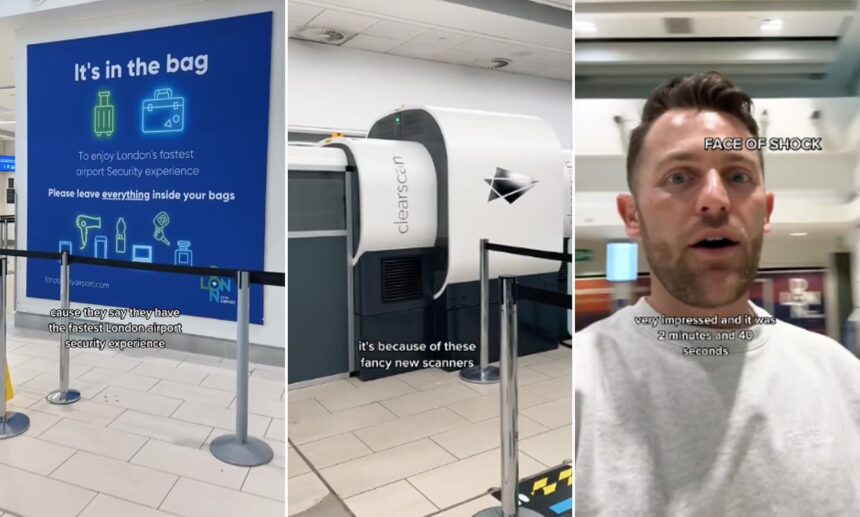Passengers travelling through Birmingham Airport (BHX) and Edinburgh Airport (EDI) will soon be exempt from the 100ml limit on liquids, aerosols and gels in their bags at security checkpoints, as the two UK airports update their security equipment.

Edinburgh and Birmingham Saying Goodbye to 2006 Rule
The rule forbidding passengers from carrying liquids of quantities over 100ml and requiring them to be sealed in clear plastic bags was introduced in 2006, following a terrorist plot to assemble and detonate explosives on a transatlantic flight, which was uncovered by UK authorities. The limit was brought in as a temporary measure but has since become another part of the airport security process for passengers everywhere. However, the United Kingdom’s Department for Transport (DfT) has signed off the two airports to drop the 100ml limit. A spokesperson for the DfT gave the following statement:
“Some airports are rolling out new technology that will allow liquid containers up to two litres to be taken through security in hand luggage. As this will be happening at different times at UK airports, passengers should continue to check security requirements with airports before they travel and come prepared with liquids in containers no larger than 100ml in hand baggage unless advised otherwise.”
Edinburgh and Birmingham have introduced new medical-grade scanners in the place of traditional x-ray machines which can analyse the molecular structure of a passenger’s belongings and flag potential threats to security staff. Passengers using these airports may carry liquids of up to two litres in their carry-on luggage, and are asked not to keep the liquids in a sealed bag, unlike previous security requirements. The new security technology will benefit security personnel, who will be able to complete checks faster and easier, as well as passengers, who will be able to clear security checkpoints in a faster and less invasive manner.

More UK Airports to Follow
The technology enabling airports to drop the 100ml rule was originally set to be rolled out in June 2024, however many key hubs did not introduce the new technology or reverted to the original limit due to concerns over the new hardware and software’s functionality.
Gordon Dewar, Chief Executive of Edinburgh Airport, celebrated the airport’s new scanning technology:
“A whole generation of travellers have only known the 100ml rule to be the case, so it really is a momentous day as we become the first airport in Scotland to lift the rule since it was introduced in 2006. The change allows more flexibility for passengers to take liquids through security, all while maintaining and improving our high safety levels through the use of 3D technology. But it is important that passengers continue to check with the situation at their return airport as not all airports will be moving away from 100ml just yet.”
Edinburgh and Birmingham are the sixth and seventh busiest airports in the UK respectively, forecast to handle 27 million passengers this year combined. Among the UK airports expected to adopt these changes are Aberdeen (ABZ), Bristol (BRZ), London City (LCY), Newcastle (NCL) and Teesside (MME). Belfast International (BFS) is also expected to recieve this technology as part of its £100 million renovation. However, London Heathrow (LHR) and Manchester (MAN) are expected to keep the 100ml standard in place. Following concerns about the equipment at some airports, the European Union and wider Schengen Area have both reverted to the 100ml limit as of 1 September 2024.
Are you looking forward to the end of the 100ml limit? Have you travelled through Edinburgh or Manchester Airport recently? Let us know in the comments below.









